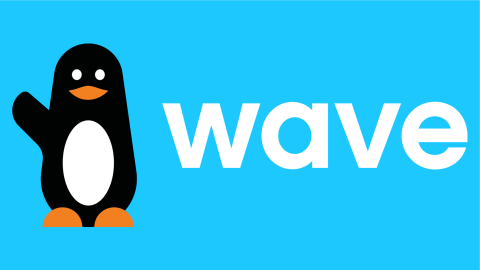Digital Dakar: Why Senegal Is Africa’s Next Fintech Capital

By the time Wave, a Senegalese-founded mobile money platform, became the first unicorn in Francophone Africa, many were surprised, but those watching closely were not.
In Dakar’s coworking spaces, tech incubators, and bustling café corners, a quiet digital revolution has been brewing. Senegal, with its capital city Dakar leading the charge, is positioning itself not just as a cultural giant in West Africa, but as the next fintech capital on the continent.
In a region traditionally dominated by Anglophone powerhouses like Nigeria, Ghana and Sierra Leone, Francophone Africa is catching up. Senegal is now at the helm, blending youthful innovation, strong policy backing, and digital infrastructure to create an ecosystem ripe for financial technology growth.
The Infrastructure That Laid the Groundwork
At the heart of Dakar’s fintech boom is a solid digital foundation. Through its Smart Senegal initiative and the Sénégal Numérique 2025 strategy, the government has invested heavily in digital infrastructure.
High-speed broadband is being extended nationwide. With over 90% mobile penetration and a rapidly growing base of smartphone users, the groundwork for digital transactions has been laid.
Additionally, innovations such as digital ID systems and open APIs have made onboarding and verification processes easier for both businesses and users. This means fintech solutions can now scale faster and serve more people without the usual bureaucratic bottlenecks.
A Startup Scene Bursting with Potential
Dakar is no longer just a city of mbalax music and peanut sauce, it is the home to some of the most exciting startups in Africa. Spaces like Jokkolabs, Orange Digital Center, and the Dakar Institute of Technology are nurturing a new generation of developers, data scientists, and digital entrepreneurs.
A big part of this growth comes from the country’s demographics. Over 60% of Senegal’s population is under the age of 25. They are young, digitally native, and entrepreneurial. This generation is building apps, launching platforms, and forming startups that reflect local realities and needs.
One standout characteristic of Senegal’s ecosystem is the strong presence of women in tech. Organizations like Ladies in Tech Senegal are empowering women to enter and lead in the fintech space, a move that is helping to close the gender gap and diversify innovation.

Wave, Wari, and the Mobile Money Evolution
Latest Tech News
Decode Africa's Digital Transformation
From Startups to Fintech Hubs - We Cover It All.
Senegal’s fintech journey can’t be told without mobile money. Long before Wave entered the scene, Wari was already making financial services accessible to people without bank accounts. But where Wari walked, Wave ran.
Launched in 2017 and backed by global accelerators like Y Combinator, Wave disrupted the space by offering zero fees for money transfers and a seamless, mobile-first experience. By 2021, it was valued at $1.7 billion.
Mobile money platforms have become the financial backbone for millions in Senegal. In a country where formal banking access remains limited, especially in rural areas, digital wallets have leapfrogged the need for brick-and-mortar banks. From market women in Saint-Louis to gig workers in Kaolack, mobile money has democratized finance.
A Government That Gets It
Unlike in some African countries where fintech innovators face an uphill battle with regulators, the Senegalese government has taken a proactive approach. Through DER.FJ (Délégation Générale à l’Entrepreneuriat Rapide des Femmes et des Jeunes), the government funds and supports thousands of youth-led businesses, especially in tech and fintech.
Furthermore, Senegal’s central bank, the BCEAO (Central Bank of West African States), has begun working on regulatory frameworks that foster innovation while protecting consumers. Though shared with seven other countries in the West African Monetary Union, BCEAO’s openness to sandboxes and regional interoperability is encouraging for fintechs looking to scale across borders.
The Francophone Advantage
What sets Dakar apart from fintech capitals like Lagos or Nairobi is its position as a Francophone tech gateway. Most of Francophone Africa has long been underserved in the digital economy. Senegal, thanks to its linguistic and cultural links, is bridging that gap.
Startups in Dakar are now targeting neighboring markets like Côte d’Ivoire, Mali, Burkina Faso, and Guinea. This pan-regional outlook, combined with a shared regulatory framework under BCEAO, allows Senegalese fintechs to expand faster and more efficiently than their Anglophone counterparts, who often have to navigate wildly different national policies and currencies.
The Challenges Faced
Despite the buzz, Dakar’s fintech rise is not without hurdles. Funding remains a major issue. While investment is increasing, Senegalese startups still receive less capital than peers in Nigeria, South Africa, or Kenya. Much of the funding is still foreign-led, with limited local VC ecosystems.
Cybersecurity and digital literacy are also concerns. As more people transact online, the risk of fraud, data breaches, and scams grows. Additionally, while mobile penetration is high, not everyone understands how to fully utilize or trust digital financial services. Bridging the trust gap, especially among older and rural populations, is an ongoing challenge.
Latest Tech News
Decode Africa's Digital Transformation
From Startups to Fintech Hubs - We Cover It All.
There is also the question of talent retention. Many skilled developers and engineers are lured abroad by higher-paying opportunities, leaving local startups struggling to scale without losing key talent.

Photo Credit: Google
What Is Next for Digital Dakar?
There are reasons to be optimistic. More international investors are looking toward Senegal, and pan-African accelerators are setting up shop in Dakar. The country’s flagship startups like Wave, PayDunya, MaTontine, and SunuBank, are expanding and attracting global attention.
With the recent rise of regional fintech collaborations and digital currency discussions within BCEAO, Senegalese startups are well-positioned to lead the Francophone fintech surge. There are talks of a second unicorn in the making and this time, it may come from a female-led company focused on microcredit for informal traders.
Watch This Space
Senegal is no longer flying under the radar. From policy shifts to startup successes, Dakar is staking its claim in Africa’s digital future. It’s not just about mobile money or tech hubs; it is about a country investing in its youth, its infrastructure, and its global relevance.
The race to become Africa’s fintech capital is heating up and while Lagos and Nairobi may still lead in size, Digital Dakar is proving that innovation, inclusion, and intention can put a small country at the top of a continental game.
Recommended Articles
There are no posts under this category.You may also like...
When Sacred Calendars Align: What a Rare Religious Overlap Can Teach Us

As Lent, Ramadan, and the Lunar calendar converge in February 2026, this short piece explores religious tolerance, commu...
Arsenal Under Fire: Arteta Defiantly Rejects 'Bottlers' Label Amid Title Race Nerves!

Mikel Arteta vehemently denies accusations of Arsenal being "bottlers" following a stumble against Wolves, which handed ...
Sensational Transfer Buzz: Casemiro Linked with Messi or Ronaldo Reunion Post-Man Utd Exit!

The latest transfer window sees major shifts as Manchester United's Casemiro draws interest from Inter Miami and Al Nass...
WBD Deal Heats Up: Netflix Co-CEO Fights for Takeover Amid DOJ Approval Claims!

Netflix co-CEO Ted Sarandos is vigorously advocating for the company's $83 billion acquisition of Warner Bros. Discovery...
KPop Demon Hunters' Stars and Songwriters Celebrate Lunar New Year Success!

Brooks Brothers and Gold House celebrated Lunar New Year with a celebrity-filled dinner in Beverly Hills, featuring rema...
Life-Saving Breakthrough: New US-Backed HIV Injection to Reach Thousands in Zimbabwe

The United States is backing a new twice-yearly HIV prevention injection, lenacapavir (LEN), for 271,000 people in Zimba...
OpenAI's Moral Crossroads: Nearly Tipped Off Police About School Shooter Threat Months Ago
ChatGPT-maker OpenAI disclosed it had identified Jesse Van Rootselaar's account for violent activities last year, prior ...
MTN Nigeria's Market Soars: Stock Hits Record High Post $6.2B Deal

MTN Nigeria's shares surged to a record high following MTN Group's $6.2 billion acquisition of IHS Towers. This strategi...
